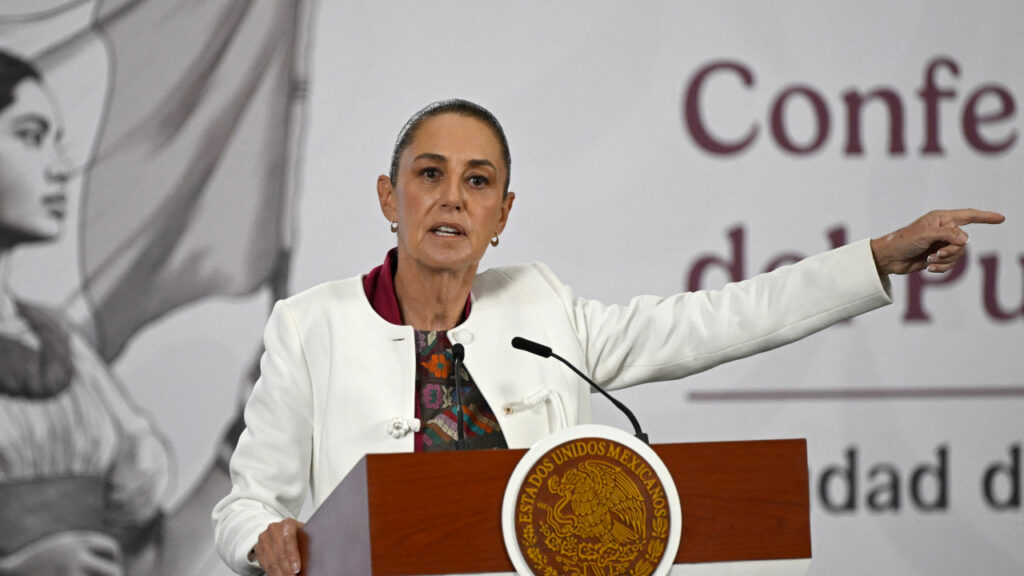
Handmaid’s Tale in Real Life? Georgia Woman Forced to Remain on Life Support While Pregnant Sets Chilling Precedent
When the on-screen adaptation of The Handmaid’s Tale aired in April 2017, many were alarmed by the similarities between Margaret Atwood’s dystopian fictional world and the current state of politics in the United States.
Still, under the protections of Roe v. Wade at the time, women hoped our country wouldn’t one day become Gilead. Just imagine this: You’re a 30-year-old woman who visits the doctor for a headache. The hospital sends you back home with some meds. Then you’re back at the hospital with brain clots. And within hours, doctors declare you brain dead.
It doesn’t end there, though. Under already grueling circumstances, doctors keep your body alive because you’re eight weeks pregnant. That’s the case of Adriana Smith, a woman whose body has been on life support for more than 90 days despite her family’s wishes, simply because she’s carrying a fetus.
“My grandson may be blind, may not be able to walk. We don’t know if he’ll live once she has him,” April Newkirk, Smith’s mother, told Atlanta’s WXIA. “And I’m not saying we would have chosen to terminate her pregnancy. What I’m saying is we should have had a choice.”
A pregnant woman and a family stripped of choice
While the case seems taken out of a horror film, it’s the reality Smith’s family is enduring. Under Georgia’s restrictive laws, there’s a ban on abortion after six weeks of pregnancy. The law cites “fetal personhood” as protection for unborn embryos and fetuses.
Governor Brian Kemp signed Georgia’s LIFE Act into law in 2019. It became effective in 2022 after the overturning of Roe v. Wade.
Despite Smith’s family’s wishes to take her off life support, Newkirk claims doctors have stated they need to keep Smith alive until her pregnancy reaches full term.
“This decision should’ve been left to us. Now we’re left wondering what kind of life he’ll have. And we’re going to be the ones raising him,” she said.
Smith also leaves behind a young son who still thinks his mother is “sleeping.” Additionally, the family is dealing with mounting medical bills they can’t afford. Regardless, doctors have told them they can’t seek further legal action at this time.
“I think every woman should have the right to make their own decision,” Newkirk said. “And if not, then their partner or their parents.”
Personhood only when it comes to a fetus
The case has sparked nationwide outrage over medical consent. And the extent to which fetal personhood is more respected than a mother’s life. Are we, in fact, living in an episode of The Handmaid’s Tale?
If we go back to Season 3’s “Heroic” episode, we may see a parallelism between Smith’s case and the story of Ofmatthew. The latter is a handmaid that’s left brain-dead after she was shot for having a mental breakdown. Under Gilead’s authoritarian state, they keep her hooked up to a life support system because she’s pregnant.
Audiences watching the show are appalled by the fictional tale Atwood created based on factual events. Yet, we’re still debating whether Smith’s body should be used as an incubator or not.
To what extent does fetal personhood become more important than the lives of the people who carry them? Or does personhood only extend to the unborn?
The truth is, since Roe v. Wade’s overturning in 2022, women in the United States have faced the horrors of having their bodily autonomy removed once they become pregnant, with the rise of restrictive abortion care policies. A Pro-Republica study shows that states with abortion bans have led to preventable deaths among dozens of women.
Even more, a Tulane University study found that states with higher abortion restrictions also showcased higher numbers of maternal mortality compared to those where abortion was still legal. Results showed a 7% increase in total maternal mortality in states with higher scores of abortion policy compared to states with lower abortion policy composites.
“It is critically important that state-level policies related to women’s access to comprehensive reproductive health care services, including abortion, are evidence-based and guided by the primary goal of improving women’s health and reducing maternal mortality,” said Dovile Vilda, research assistant professor at the Department of Social, Behavioral and Population Sciences. “Our study provides evidence that decreasing the number of abortion restrictions across the states may reduce the incidence of death during pregnancy and postpartum among all women in the US.”
All this leads to an important question: Are women in America now the equivalent of incubators?
Adriana Smith’s case could be the first of many
The politics behind bodily autonomy are blurrier by the second, but one thing that is clear as day is that women’s lives are in a chokehold at the hands of lawmakers. Smith’s is a perfect example.
As Senator Nabilah Islam Parkes wrote to Georgia’s Republican Attorney General, Chris Carr, “That any law in Georgia could be interpreted to require a brain-dead woman’s body to be artificially maintained as a fetal incubator is not only medically unsound — it is inhumane.”
Adding, “There is nothing in the LIFE Act that requires medical professionals to keep a woman on life support after brain death.”
All to which the Attorney General’s office responded, “There is nothing in the LIFE Act that requires medical professionals to keep a woman on life support after brain death. Removing life support is not an action with the purpose to terminate a pregnancy.”
Despite this response, Smith is still being kept alive, her story serving as a fair warning to all of us of a system that continues to fail us.




